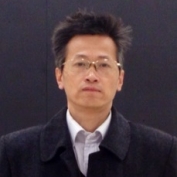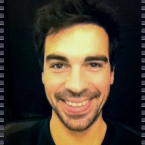FCST Fundamentals of Classical Set Theory
-
 Mr. Chen YongTao
Mr. Chen YongTao
Teacher
Language : English (US)
Present course is intended to serve as an introduction to and preparation for a futher course such as the theory of ordinals and cardinals.
The goal of this compact course is to introduce the audiences to the fundamental concepts surrounding classical set theory as quickly as possible, which paves the way for learning in-depth topics such as the theory of ordinals and cardinals. The subject is treated in informal manner that makes the course different from axiomatic set theory. Present course is intended for two audiences -- students who are interested in studying classical set theory for its own sake, and students in other areas which involves the applications of classical set theory. I trust that present course will help readers at various levels of mathematical education to begin their explorations in set theory.
The course consists of 6 lectures, each of which contains two periods of lessons. The specific content of present course is indicated by the titles of the lectures, which are as follows:
-
Sets, Subsets, Power sets;
-
Set Operations;
-
Cartesian products, Relations, Partial orderings;
-
Well orderings, Equivalence relations, Partitions;
-
Functions and Associated Concepts;
-
Cardinality and Isomorphism.
A set of review problems is provided at the end of the course. In the spirit of teachings in reality, in each week are delivered two lectures, and the lecturing on the entire course is thus completed in 3 weeks. Certainly, participants may go through the course at their own paces.
No background in mathematical logic is required, however participants are expected to be familiar with methods of proof that are developed in abstract mathematics courses such as analysis and number theory; in other words, participants are expected to be comfortable with mathematical thinking and rigorous arguments.
- H. B. Enderton, Elements of Set Theory, Academic Press, New York 1977.
- T. Jech, Set Theory, The Third Millennium Edition, revised and expanded, Springer-Verlag, Berlin 2003.
-
K. Ciesielski, Set Theory for the Working Mathematician, Cambridge University Press, Cambridge, 1997.
- M. Potter, Set Theory and its Philosophy, Oxford University Press, Oxford, 2004.

 Français
Français  English (US)
English (US)  Italiano
Italiano  Deutsch
Deutsch  Romana
Romana  Spanish
Spanish  English (UK)
English (UK)  Português (PT)
Português (PT)  Português
Português  Russian
Russian 








